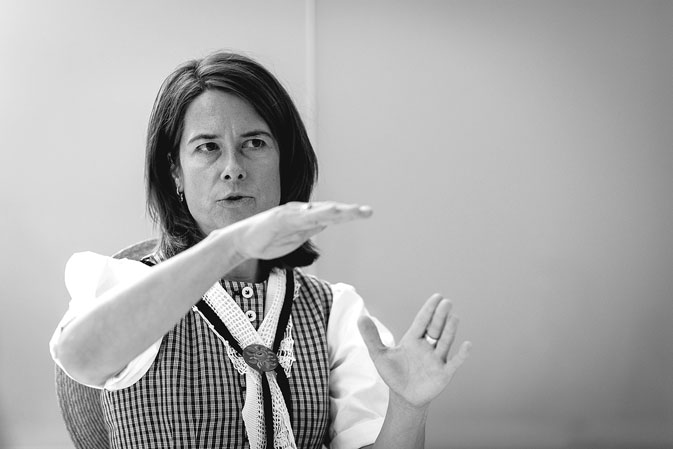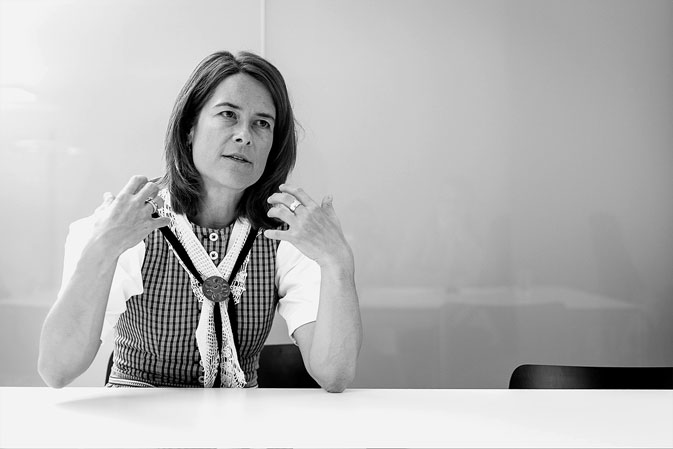The 3-pillar system combines public and private provisioning. The 2020 Reform is supposed to make it fit for the future. What's gone wrong in your view?
Firstly, the rearrangement of the first and second pillars. The 2020 Reform weakens the second pillar and strengthens the first without ensuring that the latter is on a sustainable financial footing. This undermines the whole 3-pillar structure of our old-age provisioning system. The original goal has been lost, namely to secure the long-term financing of the first and second pillars. The 2020 Reform simply shifts the problem onto the young generation. So it's not a real reform at all.
In election year, the Christian Democratic Party (CVP) decided to ally itself with the unions and adopt a watered-down version of the AHVplus Initiative. For its part, the left-wing faction agreed to support the CVP's drive to raise pensions for married couples. The gifts promised during election year could no longer be withdrawn even though it's unclear how they're going to be funded. So the two parties did some horse-trading at the expense of the AHV, which they couldn't undo afterwards without losing facing politically.
It's often said that the pact between the generations no longer works. What does this need to look like for the FDP to support a reform of old-age provisioning?
We have to revisit this contract because, as you say, it's no longer functioning properly. The 2020 Old-Age Provisioning Reform clearly demonstrates this. It's unjust for the sole reason that today's retirees won't receive the 70 Francs. Admittedly, lowering the conversion rate won't affect them, but the hike in in value-added tax will. Moreover, it's not fair in my view to persuade 45-year-olds to vote yes by promising them a 70 Franc increase in their pensions when they eventually retire. I don't understand why a 20-year transitional generation shouldn't have to put up with lowering the conversion rate in the mandatory part of the pension fund. And the biggest injustice of all: Although the members of the young generation up to 45 will receive 70 Francs more in AHV payments, they will still have to accept larger pay-packet deductions, an increase in value-added tax and a lower conversion
rate. The youngsters are carrying the heaviest load here. This is particularly unacceptable since, as of 2027, it will be the young generation who once again have to foot the bill for refinancing the AHV. A contract between the generations has be structured equitably and not in a way that places the main burden on the shoulders of younger people.
The FDP and trade associations object to raising the AHV pension by 70 Francs and the Young Socialists to raising the retirement age for women to 65. Is too much ideological thinking getting in the way of a solution here?
I don't think so. The majority of voters believe that the retirement ages for women and men should be aligned. Furthermore, we've already submitted several different compromise proposals. For example, we've suggested abolishing the coordination deduction, which would mean more attractive pensions for part-time workers. Union leader Rechsteiner called for such a move in the Swiss Council of States and we proposed its introduction instead of the 70 Franc measure. The leftists, however, turned a deaf ear to compromises and forced through the damaging and unjust 70 Francs idea.
This is yet another major drawback of the 2020 Reform: At the end of the day, it'll be the poorest who'll be left with the least amount of money in their pockets because the 70 Francs will be offset against the supplementary benefits received. This is not even a zero-sum game because AHV pensions are subject to tax and supplementary benefits are not. And because the poorest, too, will have to pay higher value-added tax, they'll end up with less money. It's outrageous to set in motion a reform of old-age provisioning where the young and the poorest are taken for fools. Exactly the left-wingers, who never tire of drawing attention to their strong social consciences, support this reform.




